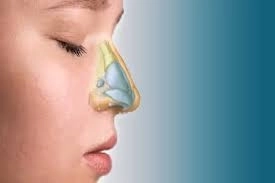
Chronic Nasal Congestion: Causes and Treatment with Dr. Amr Khalif
Published on: 2025-06-25 | Written by: Dr. Amr Khalifa, Consultant and Lecturer of Otorhinolaryngology
Dr. Amr Khalif, Consultant and Lecturer of Otolaryngology (ENT), treats numerous cases of chronic nasal congestion—a common complaint that affects breathing, sleep quality, and overall comfort. It can be caused by structural or inflammatory issues that require proper medical attention.
What Is Chronic Nasal Congestion?
Nasal congestion is the sensation of restricted airflow through one or both nostrils. Dr. Amr Khalif explains that it can be temporary or long-term and may be accompanied by symptoms like facial pressure, nasal discharge, or a reduced sense of smell.
Common Causes of Nasal Congestion
According to Dr. Amr Khalif, the most frequent causes include:
-
Deviated nasal septum
-
Chronic or acute sinusitis
-
Nasal polyps
-
Seasonal or chronic allergic rhinitis
-
Irritation or inflammation due to infection or dry air
-
Benign or rare nasal tumors
When Should You See a Doctor?
Dr. Amr Khalif recommends seeking medical evaluation if:
-
Congestion persists for more than two weeks
-
You experience thick yellow or green discharge
-
There are sleep disturbances or frequent snoring
-
You feel pressure or pain around the face or eyes
-
There is frequent nosebleeding or loss of smell
Diagnosis and Treatment Options
Diagnosis is based on a physical examination, nasal endoscopy, and sometimes CT scans.
Dr. Amr Khalif notes that treatment depends on the underlying cause and may include:
-
Nasal sprays (decongestants or corticosteroids)
-
Antihistamines for allergy-related congestion
-
Antibiotics if a bacterial infection is present
-
Corticosteroid treatments for polyps
-
Surgical intervention for structural issues like deviated septum or large polyps
Is Surgery Always Necessary?
Dr. Amr Khalif emphasizes that surgery is not always the first solution. It is usually considered when medication fails or when there is a clear anatomical issue obstructing airflow.
Preventive Tips from Dr. Amr Khalif
-
Avoid exposure to dry or polluted air
-
Use saline sprays to keep the nasal passages clean
-
Treat allergies early to prevent complications
-
Avoid smoking and strong odors

